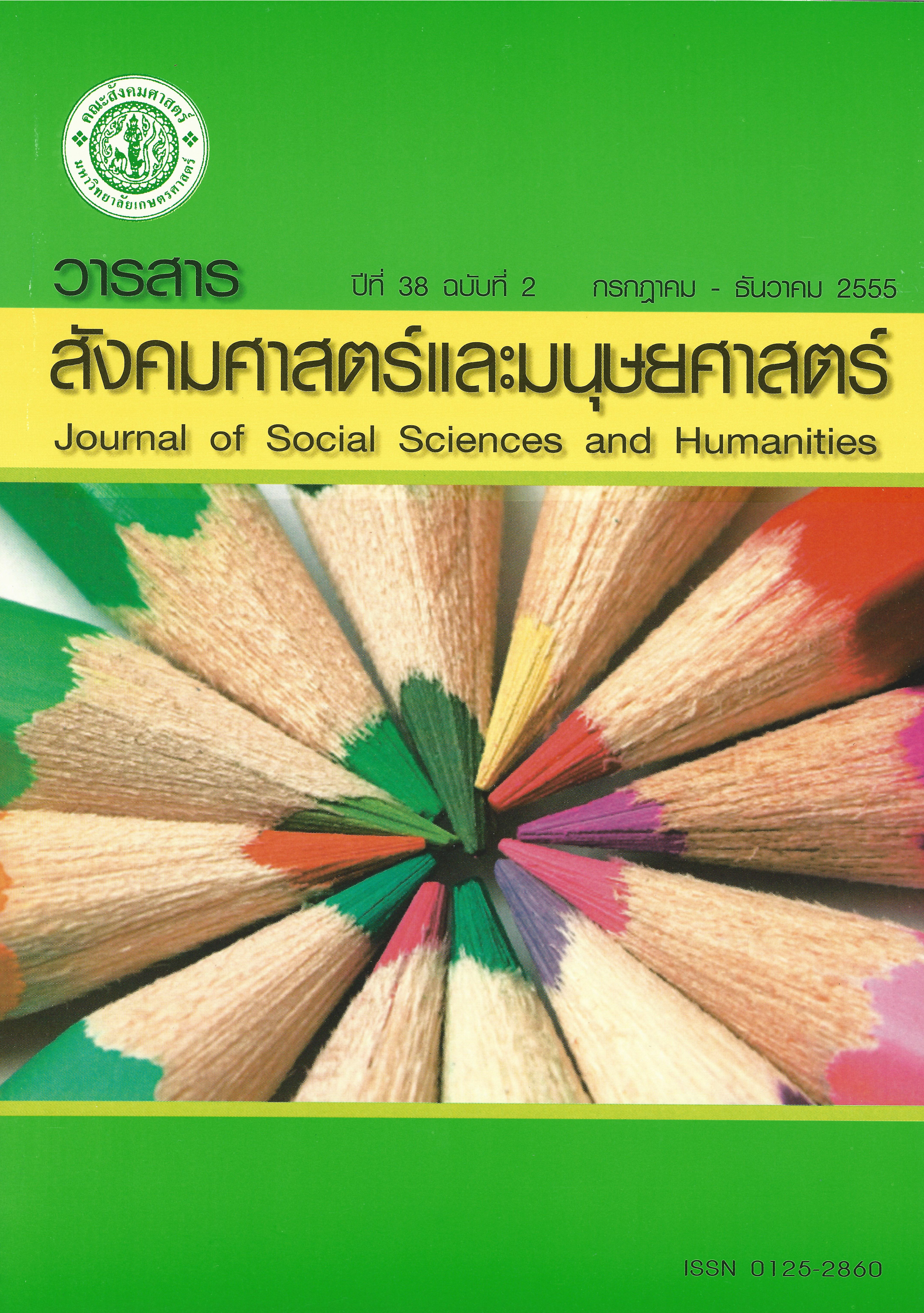การเสริมสร้างพลัง ความเครียดจากการตั้งครรภ์และการดูแลบุตร และพฤติกรรมการดูแลตนเองหลังคลอดของมารดาวัยรุ่นในโรงพยาบาลสังกัดกรมการแพทย์ กระทรวงสาธารณสุข กรุงเทพมหานคร
Main Article Content
บทคัดย่อ
การวิจัยครั้งนี้มีวัตถุประสงค์เพื่อศึกษาระดับการเสริมสร้างพลัง ความเครียดจากการตั้งครรภ์และการดูแลบุตร และพฤติกรรมการดูแลตนเองหลังคลอดของมารดาวัยรุ่นในโรงพยาบาล เพื่อเปรียบเทียบพฤติกรรมการดูแลตนเองหลังคลอดของมารดาวัยรุ่นในโรงพยาบาลตามปัจจัยส่วนบุคคลที่แตกต่างกัน และเพื่อศึกษาความสัมพันธ์ระหว่างการเสริมสร้างพลังและความเครียดจากการตั้งครรภ์และการดูแลบุตร กับพฤติกรรมการดูแลตนเองหลังคลอด กลุ่มตัวอย่างเป็นมารดาวัยรุ่นหลังคลอดจำนวน 169 คน โดยใช้แบบสอบถามเก็บรวบรวมข้อมูลสถิติที่ใช้ ได้แก่ ค่าร้อยละ ค่าเฉลี่ย ส่วนเบี่ยงเบนมาตรฐาน การทดสอบแบบที การวิเคราะห์ความแปรปรวน การทดสอบความแตกต่างรายคู่ด้วยวิธีความแตกต่างนัยสำคัญน้อยสุด และค่าสัมประสิทธิ์สหสัมพันธ์แบบเพียร์สัน ผลการวิจัยพบว่ากลุ่มตัวอย่างมีการเสริมสร้างพลังปานกลาง มีความเครียดจากการตั้งครรภ์และการดูแลบุตรน้อย และมีพฤติกรรมการดูแลตนเองหลังคลอดสูง ปัจจัยส่วนบุคคลในด้านระดับการศึกษาที่แตกต่างกัน ทำให้มีพฤติกรรมการดูแลตนเองหลังคลอดแตกต่างกันอย่างมีนัยสำคัญทางสถิติที่ระดับ .05 การเสริมสร้างพลังมีความสัมพันธ์ทางบวกกับพฤติกรรมการดูแลตนเองหลังคลอดอย่างมีนัยสำคัญทางสถิติที่ระดับ .01 นอกจากนี้ ความเครียดจากการตั้งครรภ์และการดูแลบุตรมีความสัมพันธ์ทางบวกกับพฤติกรรมการดูแลตนเองหลังคลอดอย่างมีนัยสำคัญทางสถิติที่ระดับ .05 และ .001 ตามลำดับ
Empowerment, Stress from Pregnancy and Taking Care of Children and Postpartum Self-Care Behavior of Adolescent Mothers at Hospital of Department of Medical Services, Ministry of Public Health in Bangkok
The objectives of this research were to study the empowerment, stress from pregnancy and taking care of children and postpartum self-care behavior of adolescent mothers at hospital. It also compared the differences of postpartum self-care behavior of adolescent mothers at hospital according to their personal factors. Finally, it examined the relationship between empowerment, stress from pregnancy and taking care of children with postpartum self-care behavior. The sample consisted of 169 adolescent mothers. Questionnaire was the tool to gather the data for the study. Statistical methods employed were the percentages, the mean, the standard deviation, the t-test, the analysis of variance, the least significant difference, and Pearson’s product moment correlation coefficient. Research results could be summarized as follows. Empowerment of adolescent mothers was at the moderate level. Stress from pregnancy and taking care of children was also at the low level. On the other hand, postpartum self-care was at the high level. The adolescent mothers with different level of education had different postpartum self-care behavior at the 0.05 level of statistical significance. Empowerment was positively correlated with postpartum self-care behavior at the 0.01 level of significance. And stress from pregnancy and taking care of children were positively correlated with postpartum self-care behavior at the 0.05 level of significance and 0.001, respectively.


